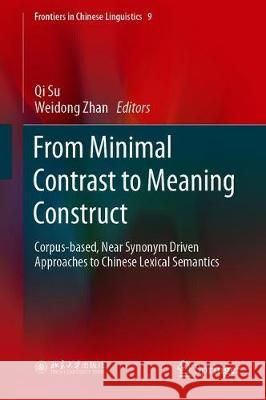From Minimal Contrast to Meaning Construct: Corpus-Based, Near Synonym Driven Approaches to Chinese Lexical Semantics » książka
topmenu
From Minimal Contrast to Meaning Construct: Corpus-Based, Near Synonym Driven Approaches to Chinese Lexical Semantics
ISBN-13: 9789813292390 / Angielski / Twarda / 2019 / 332 str.
From Minimal Contrast to Meaning Construct: Corpus-Based, Near Synonym Driven Approaches to Chinese Lexical Semantics
ISBN-13: 9789813292390 / Angielski / Twarda / 2019 / 332 str.
cena 402,53
(netto: 383,36 VAT: 5%)
Najniższa cena z 30 dni: 385,52
(netto: 383,36 VAT: 5%)
Najniższa cena z 30 dni: 385,52
Termin realizacji zamówienia:
ok. 16-18 dni roboczych.
ok. 16-18 dni roboczych.
Darmowa dostawa!
Kategorie:
Kategorie BISAC:
Wydawca:
Springer
Seria wydawnicza:
Język:
Angielski
ISBN-13:
9789813292390
Rok wydania:
2019
Wydanie:
2020
Numer serii:
000820867
Ilość stron:
332
Waga:
0.65 kg
Wymiary:
23.39 x 15.6 x 2.06
Oprawa:
Twarda
Wolumenów:
01
Dodatkowe informacje:
Wydanie ilustrowane











